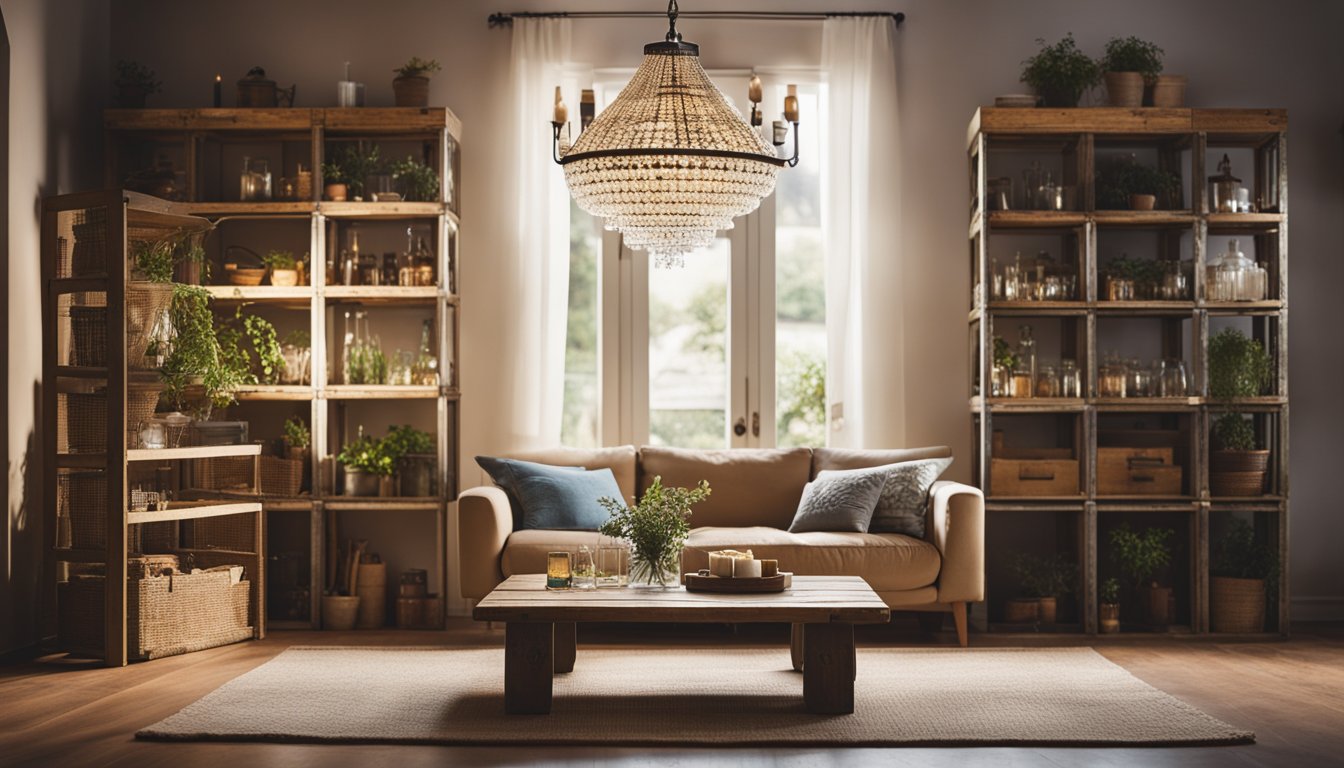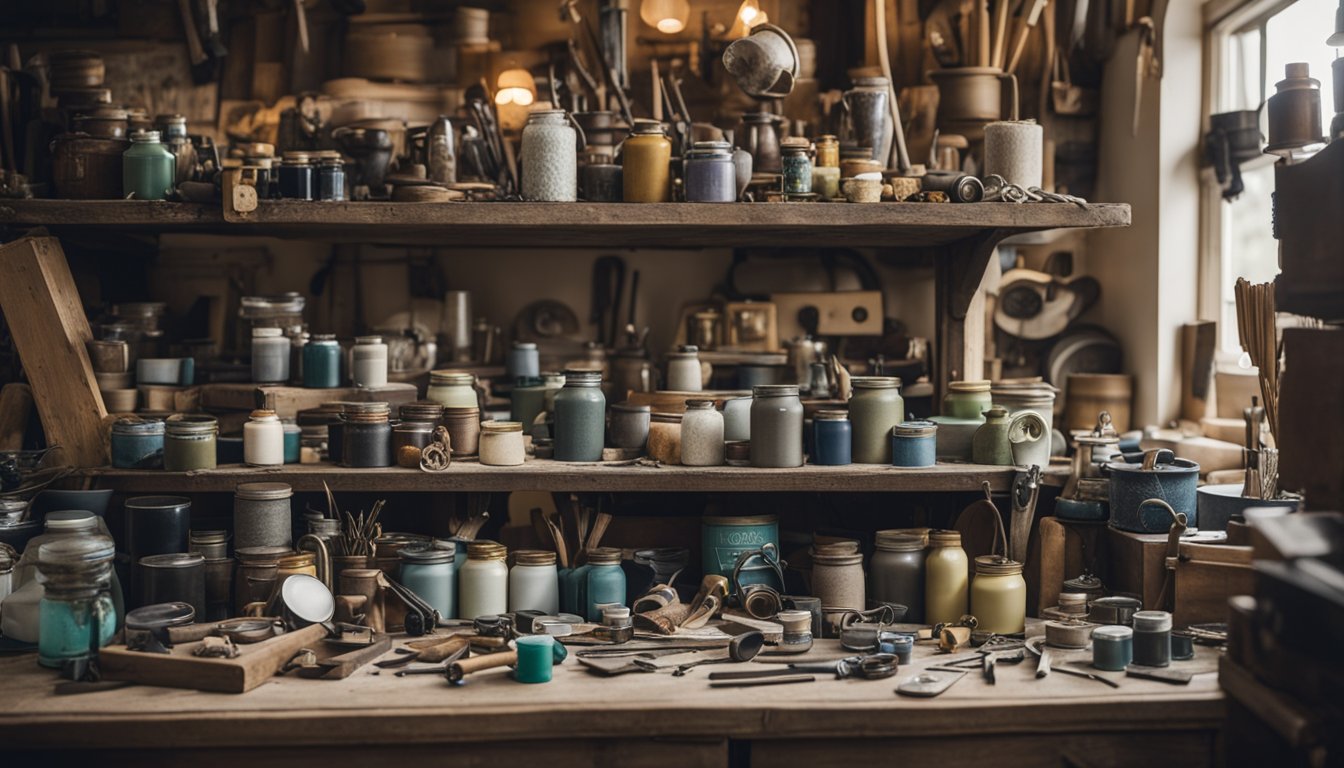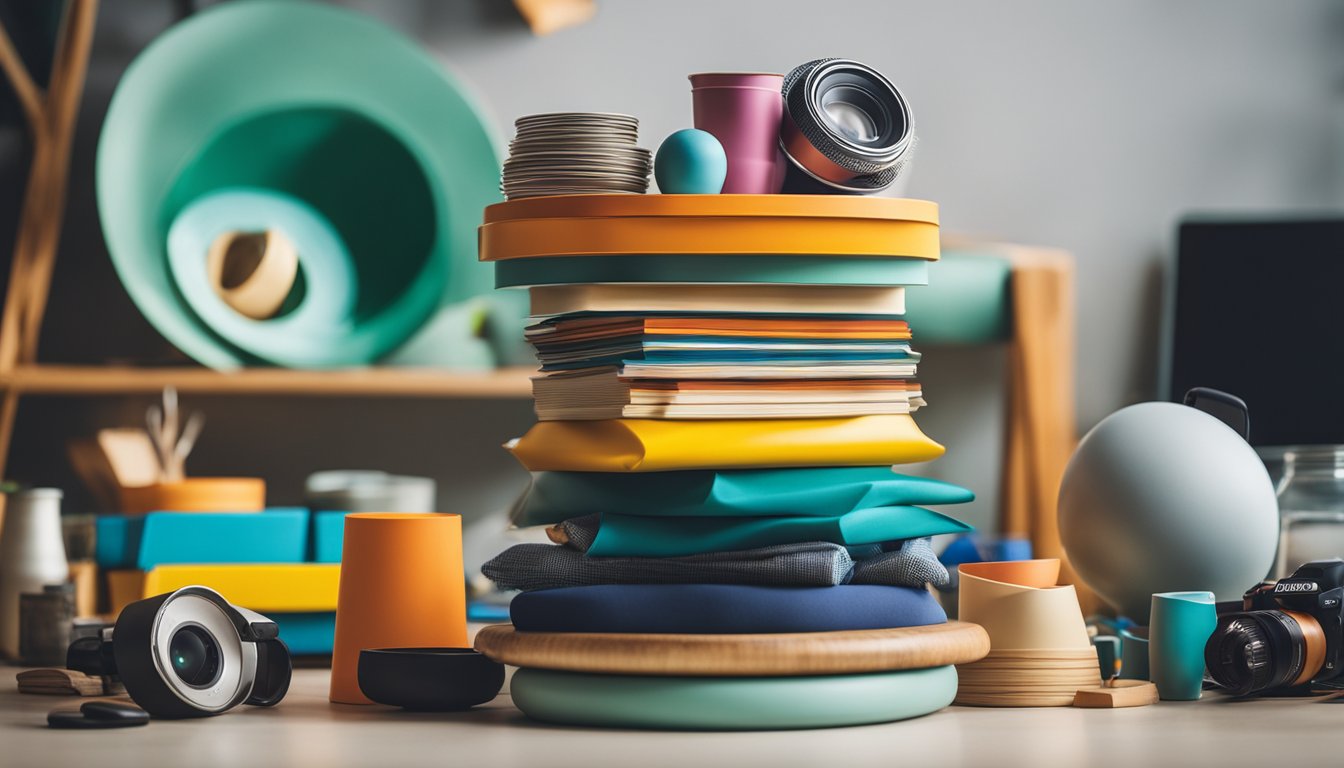Late updated: 07 Nov 2024 13:11
Written by: Daniel Harper
Innovative Upcycling Ideas For Home Decor: Transform Your Space Creatively
In our ever-evolving quest to live sustainably, upcycling has emerged as a significant trend in home decor. This innovative approach not only fosters creativity but also champions environmental stewardship by turning would-be waste into charming and functional pieces. Embracing upcycling allows us to transform everyday objects into unique decor, enhancing our homes with personal flair while reducing waste. From utilising old vinyl records as chic bowls to crafting bespoke furniture from discarded materials, the possibilities are as numerous as they are inspiring.

We find that the art of upcycling aligns perfectly with the growing emphasis on sustainable living. Repurposing items not only minimises landfill contributions but also offers a fresh perspective on home decoration. Each upcycled creation tells a story and invites conversation, adding a unique touch to any living space. With our guidance, you will discover the joy and satisfaction of crafting pieces that reflect your style and commitment to the environment.
Our exploration of upcycling will offer practical steps and creative ideas that anyone can incorporate, regardless of their crafting skills. The beauty of upcycling lies in its accessibility; with a bit of imagination, even the most novice DIYer can create something beautiful and functional. Join us as we delve into this sustainable lifestyle choice, combining creativity with conscious living.
Key Takeaways
- Upcycling adds unique style to home decor while promoting sustainability.
- Repurposing objects helps reduce waste and supports environmental goals.
- Creative upcycling projects are accessible to all skill levels.
Exploring Upcycling in Home Decoration
Upcycling in home decoration offers a sustainable approach to enhancing our living spaces. By integrating vintage pieces and reimagining everyday objects, we infuse creativity and uniqueness into our homes, while also minimising waste.
The Essence of Upcycling and Sustainability
Upcycling transforms old or unwanted items into something new and valuable. It's a cornerstone of sustainable design, reducing waste and decreasing our environmental footprint. This process not only conserves resources but also breathes new life into objects, imbuing them with character and charm.
In the context of home decoration, upcycling offers endless opportunities. Whether it's creatively reimagining a vintage suitcase as a coffee table or converting a door into a headboard, upcycling inspires innovation. It motivates us to think beyond traditional uses, encouraging a fusion of functionality and aesthetics.
Seeking Inspiration for Upcycling Projects
Finding inspiration for upcycling projects can take many forms. Our creative ideas might stem from nature, art, or even other cultures' traditional crafts. Online platforms like Pinterest or Instagram act as vast visual libraries, showcasing ideas from around the globe.
Local flea markets or antique shops also provide fertile ground for inspiration. Browsing vintage pieces can spark new ideas on how to repurpose them, such as turning a medicinal cabinet into a stylish bathroom vanity. By staying open and observant, inspiration can strike unexpectedly, allowing us to see potential in overlooked objects.
Upcycling Vintage Pieces for Modern Homes
Incorporating vintage pieces into modern homes through upcycling can create a striking juxtaposition. The fusion of old and new elements not only adds depth but also tells a story. A vintage suitcase might serve as an eye-catching side table, or a medicinal cabinet might be reimagined as a quirky storage solution.
Repurposing such items brings a touch of history to contemporary spaces while offering practical uses. Our creativity allows us to honour the past and create something unique and functional. By integrating innovative design with vintage charm, we enrich our homes while being mindful of sustainability.
Crafting Unique Upcycled Home Decor Items

In the world of home décor, creativity and sustainability can harmoniously coexist. By transforming waste into items of beauty and utility, we not only personalise our living spaces but also contribute positively to our environment.
Transforming Everyday Objects into Functional Art
Everyday items, often overlooked, can be reimagined as functional art. Think wooden crates transformed into rustic bookshelves or charming planters. By adding simple touches such as a fresh coat of paint or adding metal brackets, these crates can become striking focal points.
Another idea is to upcycle pendant lights. Using reclaimed materials like metal strainer bowls or glass jars, we can create unique light fixtures. Such projects not only illuminate our spaces but also serve as testament to our ingenuity.
Upcycling Waste into Decorative Wall Art
Wall art offers a perfect opportunity to channel our creativity while reducing waste. Discarded cardboard boxes can be cut into geometric shapes, painted, and arranged into abstract wall pieces.
We can also utilise old fabric scraps, which could be stretched over frames to create textured art pieces that add warmth and colour to any room. By combining bold prints and textures, we can craft distinctive pieces that exude personality and flair.
DIY Projects: Breathing New Life into Old Furniture
Old furniture often loses its lustre but can be revitalised with some DIY ingenuity. Upcycled furniture, like a tired dresser, can be given a fresh face with bold paint or new handles. By adding patterned wallpaper to drawer fronts, we introduce an unexpected burst of style.
Small projects, like turning an old ladder into a chic bookshelf, can transform our spaces without heavy investment. By using reclaimed wood to add new shelves, the piece can act as a statement piece that both decorates and organises. Through such projects, we give old items a new lease on life, merging function with artistic flair.
Frequently Asked Questions

Innovative upcycling can transform ordinary household items into stylish decor. Let's explore some practical ideas for turning old items into unique pieces, clever budget-friendly projects, potential business ventures, and useful resources for inspiration. These FAQs will guide you through making the most of upcycling opportunities.
What are some easy and creative repurposing ideas for home decoration?
Repurposing ideas include turning glass jars into decorative candle holders or using old picture frames to create custom artwork displays. Consider converting wooden pallets into rustic shelves or tables. Even using fabric scraps to make unique cushion covers can brighten up spaces with minimal effort.
How can I transform old items into unique home decor pieces?
Start by assessing the materials you have at hand. For instance, you can paint and stack old crates to form a fashionable bookshelf. Outdated furniture can be rejuvenated with a splash of paint and new upholstery. Adding different textures, such as tiles to an old tray, can enhance its aesthetic appeal.
What are clever upcycling projects for enhancing a home with a limited budget?
Focus on items you already own or can acquire cheaply. For example, use vintage suitcases as quirky storage solutions or side tables. Reinvent mason jars as chic pendant lights by carefully adding bulb fittings. Thrifting can provide you with unique items that can be transformed with creativity and a bit of effort.
Can you suggest some upcycled items that could be sold for a home decor business?
Consider creating bespoke furniture items like pallet sofas or coffee tables. Repurposed vintage crockery into clocks or planters can appeal to customers seeking one-of-a-kind pieces. Wine bottle candle holders or painted window frames for wall art might attract buyers interested in eco-friendly aesthetics.
How can I use upcycling in a school project focused on home decoration?
Begin with simple projects such as crafting pencil holders from tin cans. A creative approach could be transforming cereal boxes into organisers. Encourage team efforts to construct small furniture pieces from reclaimed wood. These projects can highlight sustainability while offering practical experience in design and craftsmanship.
What are the best resources for finding inspiration for upcycled home decor?
Online platforms such as Pinterest and Instagram offer endless ideas with detailed tutorials. Books dedicated to DIY crafts also provide valuable insights. Participating in community workshops or events focused on upcycling can connect you with fellow enthusiasts and inspire new projects.
